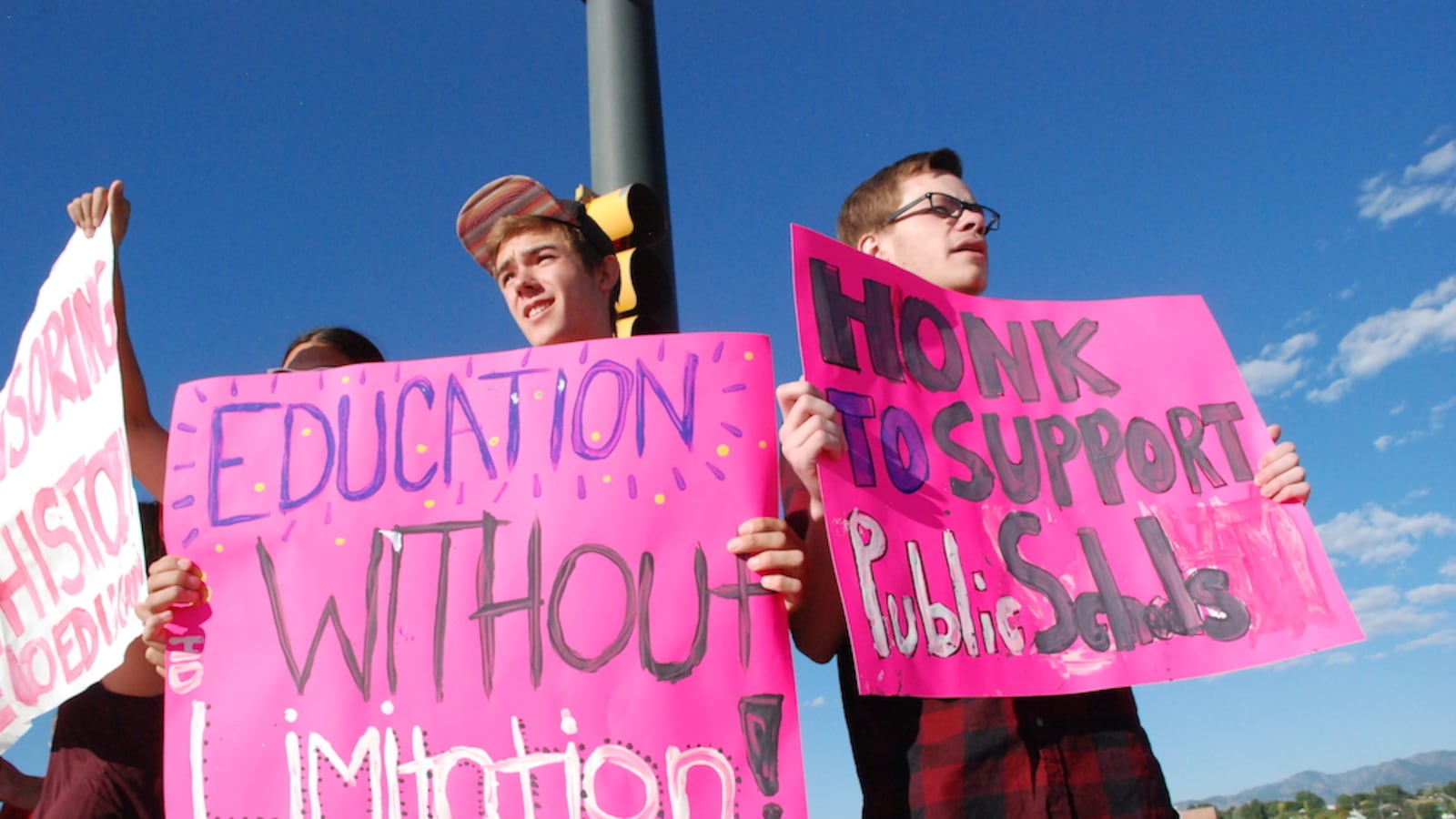Feeling scorned by their school district’s conservative board majority, Jefferson County high school students plan to keep the heat on their elected officials.
Calling themselves the Jeffco Student Network for Change, the coalition plans to make their public debut at a noon rally Saturday in Littleton.
Organized by about 20 students from most of the suburban county’s high schools, the students plan to ask attendees whether they would support a recall of at least two members of school board majority made up of Ken Witt, Julie Williams, and John Newkirk.
The question of whether to attempt to recall the conservative majority, who were each elected by wide margins last year, has often been a topic of conversation among parents, teachers, and board observers.
While the conversation reached a fevered pitch last spring before a summer cool-down, no official campaign manifested. In fact, some of the most vocal and connected opponents to the board majority privately dissuaded one another from pulling the trigger on an expensive recall election.
It won’t work. It will cost too much money. It will be mutually assured destruction, they said.
But a recent decision to revamp an existing curriculum review process and place it under the board of education’s purview has changed things, said Ashlyn Maher, a Chatfield High School senior.
Still too young to vote herself, Maher said, “a recall is much more feasible now.”
If official recall petitions aren’t ready by Saturday, Maher said, students will collect contact information from attendees Saturday.
In order to establish a recall election, the student organization would need to collect 15,000 signatures, or 40 percent of the voters in the last regular election, per board member. They would have 60 days to collect those signatures after they file the recall petitions with the county clerk. If enough certified signatures are gathered in time, an election would be held between 45 and 75 days.
Jeffco Public Schools would be required to pay for the election’s costs.
“It’s a huge step, it’s a huge commitment, it’s a lot of money,” said Thomas Sizemore, a Lakewood High School student. “It’s a really big decision.”
Both Maher and Sizemore organized protests last month at their respective high schools during a week of acrimony. Thousands of students marched out of their classrooms to the street to protest a proposed curriculum review committee that they believed would lead to censoring a popular advanced history course.
While the board ultimately adopted tamer language, students are skeptical.
“It was like a smack on the face,” Sizemore said, referring to the board majority’s decision to move forward with the panel.
Both Sizemore and Maher said they believe the board majority chose to push their own political agenda instead of listening to a groundswell of public opposition. Opponents to the curriculum review panel outnumbered supporters by more than two-to-one during an expanded public comment before the board took its vote Thursday.
Witt, the board’s chairman, defended the 3-2 decision to expand the district’s current system to include teachers and students when curriculum is challenged and to make those meetings public.
“I’m delighted with the result we’ve come up with the curriculum review process,” he said by phone Monday. He said input from the district, community, and board were all a part of the final solution.
“Unanimity is not necessary for compromise,” Witt said. “I’m very confident that this is by far the best compromise we could have come up.”
While student organizers behind the network said they hope to establish working relationships with other community advocacy groups, their decisions are their own.
“We’re going to make our opinions known,” Sizemore said. “We’re not going to give up that easily.”
Besides reigniting the conversation about a recall, Jeffco Student Network for Change leaders plan to attend upcoming board meetings.
“We will definitely be at the next meeting for sure, and the next one, and the next one, until we’re heard,” Maher said. “There is no stopping us now.”
Witt said he welcomes more students speaking during public comment.
“I think it’s great that our students want to involve themselves in our civic dialogue,” he said.

